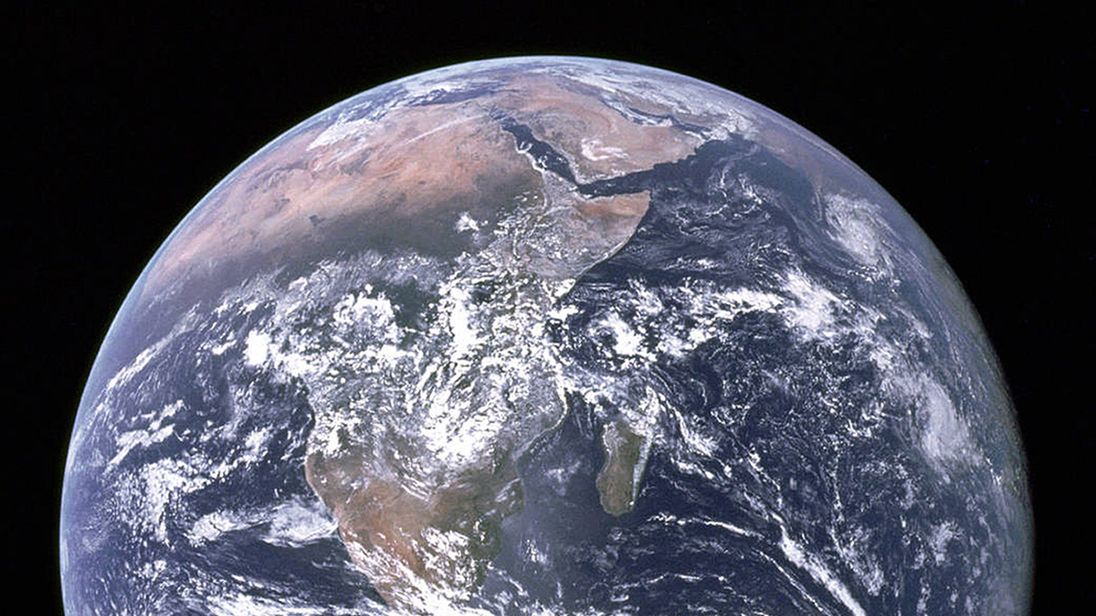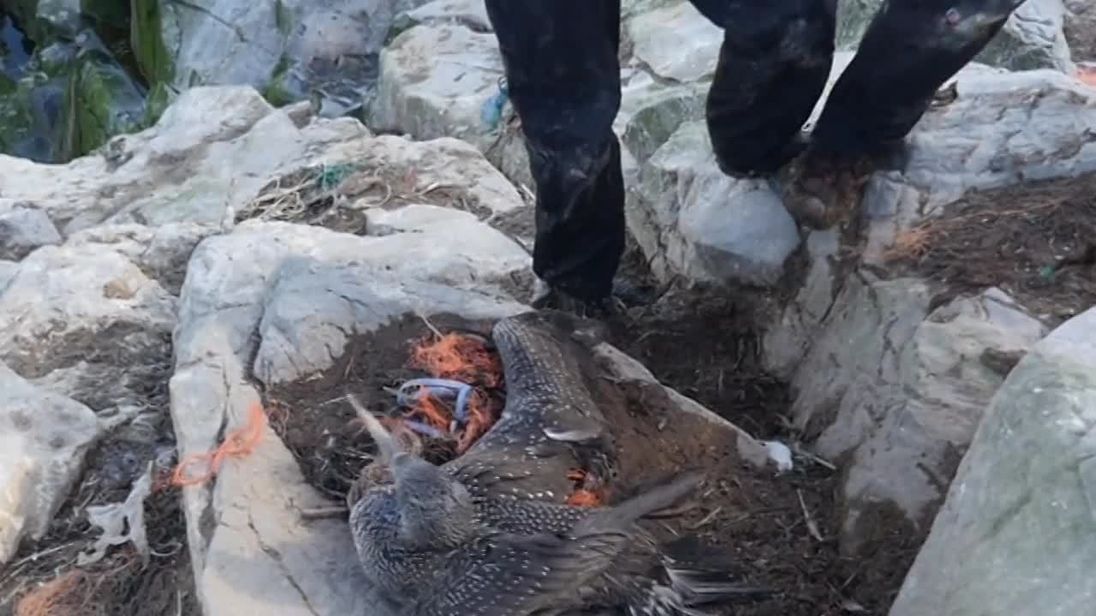Irreversible means that "The earth won't repair the damage itself" and could be fatal to the human race in time. However, if the human race doesn't lose technology we may be able to reverse some of the damage in ways sort of like Geostorm (the movie). However, you also have the problems in geostorm then to deal with too. However, it is more likely that civilizations will allow Global Warming to kill off half of the poorest people on earth because that is better than having nuclear wars or regular wars. Humans are not controlling their births by governments so global warming is going to take out likely half of humanity during this century and the next. So, storms will be worse (because increased heat creates highly increased winds), droughts will be worse in some areas and floods will be worse in many areas too. So, depending where you live you will be flooded more, blown away in the winds more or have worse droughts or potentially some places all three. And other places you will paradoxically freeze more too as climates go through radical up and down temperatures and wind and rain and snow changes in extreme ways too. So, expect extreme changes, increased deaths from all types of weather events during this century and the next without warning.
begin quote from:
Sky News · 7h
Daily Mail · 1d
...
with no ties to governmental and non-governmental organizations or
corporation released "World Scientists’ Warning to Humanity: a second
notice" on Monday in the journal Bioscience. The letter, spearheaded …
The Weather Channel · 4h
FORTUNE · 3h
CBS Miami · 41m
D'Marge · 10m
WFTV Orlando · 2h
CBC · 1d
"World
Scientists' Warning to Humanity: A Second Notice," published Monday in
the international journal BioScience, charts the progress -- or …
Warning to Humanity: 15,000 scientists say damage irreversible
Scientists say threats from a similar warning 25 years ago have only worsened, meaning the Earth is facing "irreversible harm".
Humans are
"jeopardising our future" by failing to tackle material consumption and
rein in population growth, more than 15,000 scientists have warned.
The "Warning to Humanity" is even more bleak than a
similar prophetic warning to the world by about 1,700 experts in 1992
called the Warning from the Union of Concerned Scientists.
Writing in the online international journal BioScience, the scientists said every one of the major threats identified 25 years ago has worsened apart from the hole in the ozone layer, which has been stabilised.
They said environmental impacts were likely to inflict "substantial and irreversible harm" on the Earth.
:: Sky Ocean Rescue: How to get involved
Their warning comes as the UN Climate Change Conference takes place in Bonn, Germany - the first major environmental meeting since US President Donald Trump said in June the US will pull out of the Paris accord, which aims to limit global warming to 1.5C.
Led by top US ecologist Professor William Ripple, from Oregon State University, the open letter said: "Humanity is now being given a second notice.
"We are jeopardising our future by not reining in our intense but geographically and demographically uneven material consumption and by not perceiving continued rapid population growth as a primary driver behind many ecological and even societal threats.
"By failing to adequately limit population growth, reassess the role of an economy rooted in growth, reduce greenhouse gases, incentivise renewable energy, protect habitat, restore ecosystems, curb pollution, halt defaunation, and constrain invasive alien species, humanity is not taking the urgent steps needed to safeguard our imperilled biosphere."
In their original 1992 warning scientists, including most of the world's Nobel Laureates, warned human impacts on the natural world were likely to lead to "vast human misery".
The new notice was signed by 15,364 scientists from 184 countries and drew on data from government agencies, non-profit organisations and individual researchers.
Prof Ripple said: "Those who signed this second warning aren't just raising a false alarm. They are acknowledging the obvious signs that we are heading down an unsustainable path.
"We are hoping that our paper will ignite a widespread public debate about the global environment and climate."
The scientists said over the past 25 years:
:: The amount of fresh water available per head of population worldwide has reduced by 26%
:: The number of ocean "dead zones" - places where little can live because of pollution and oxygen starvation - has increased by 75%
:: Nearly 300 million acres of forest have been lost, mostly to make way for agricultural land
:: Global carbon emissions and average temperatures have shown continued significant increases
:: Human population has risen by 35%
:: The number of mammals, reptiles, amphibians, birds and fish in the world has collectively fallen by 29%.
They said progress made in some areas, including reducing ozone-depleting chemicals and increasing renewable energy generation, had been far outweighed by the damage.
Writing in the online international journal BioScience, the scientists said every one of the major threats identified 25 years ago has worsened apart from the hole in the ozone layer, which has been stabilised.
They said environmental impacts were likely to inflict "substantial and irreversible harm" on the Earth.
:: Sky Ocean Rescue: How to get involved
Their warning comes as the UN Climate Change Conference takes place in Bonn, Germany - the first major environmental meeting since US President Donald Trump said in June the US will pull out of the Paris accord, which aims to limit global warming to 1.5C.
Led by top US ecologist Professor William Ripple, from Oregon State University, the open letter said: "Humanity is now being given a second notice.
"We are jeopardising our future by not reining in our intense but geographically and demographically uneven material consumption and by not perceiving continued rapid population growth as a primary driver behind many ecological and even societal threats.
"By failing to adequately limit population growth, reassess the role of an economy rooted in growth, reduce greenhouse gases, incentivise renewable energy, protect habitat, restore ecosystems, curb pollution, halt defaunation, and constrain invasive alien species, humanity is not taking the urgent steps needed to safeguard our imperilled biosphere."
In their original 1992 warning scientists, including most of the world's Nobel Laureates, warned human impacts on the natural world were likely to lead to "vast human misery".
The new notice was signed by 15,364 scientists from 184 countries and drew on data from government agencies, non-profit organisations and individual researchers.
Prof Ripple said: "Those who signed this second warning aren't just raising a false alarm. They are acknowledging the obvious signs that we are heading down an unsustainable path.
"We are hoping that our paper will ignite a widespread public debate about the global environment and climate."
The scientists said over the past 25 years:
:: The amount of fresh water available per head of population worldwide has reduced by 26%
:: The number of ocean "dead zones" - places where little can live because of pollution and oxygen starvation - has increased by 75%
:: Nearly 300 million acres of forest have been lost, mostly to make way for agricultural land
:: Global carbon emissions and average temperatures have shown continued significant increases
:: Human population has risen by 35%
:: The number of mammals, reptiles, amphibians, birds and fish in the world has collectively fallen by 29%.
They said progress made in some areas, including reducing ozone-depleting chemicals and increasing renewable energy generation, had been far outweighed by the damage.




No comments:
Post a Comment